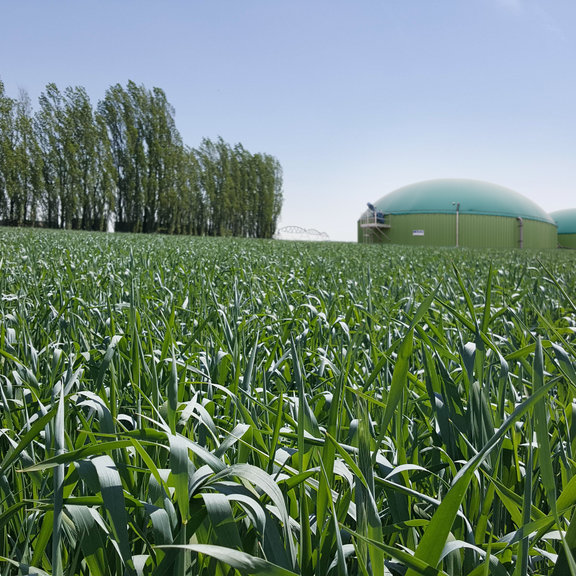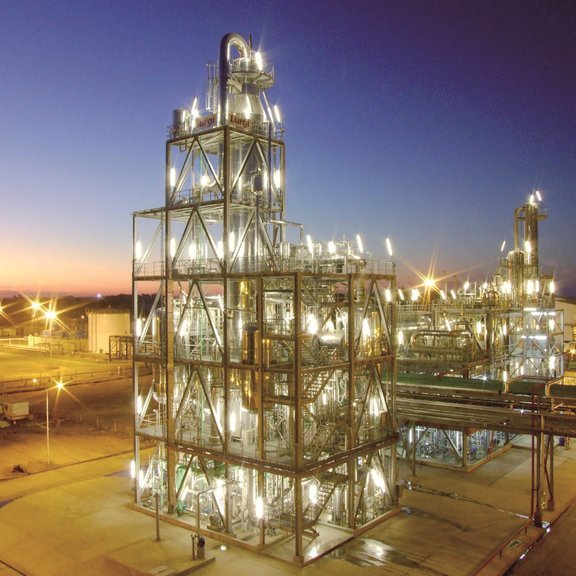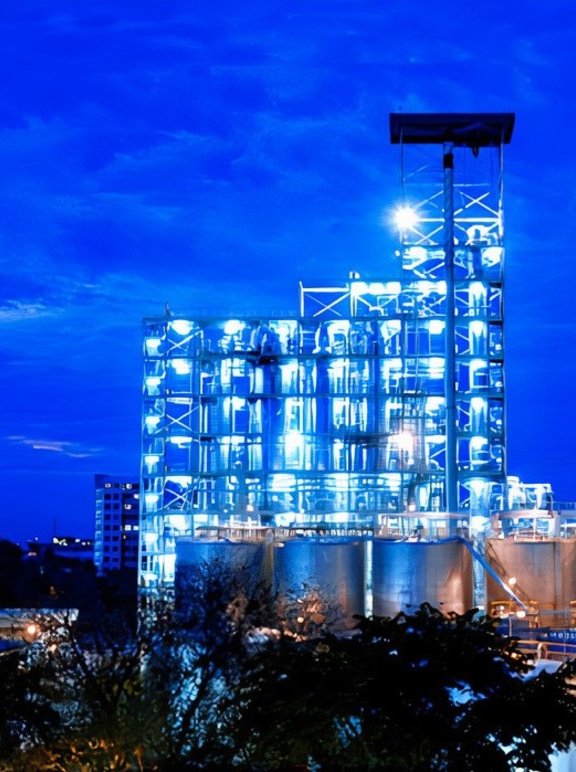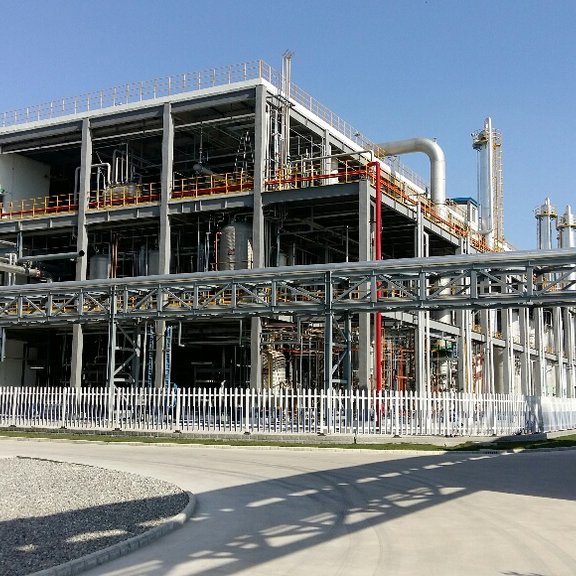Green Chemicals & Fuels
Technologies to create green chemicals and fuels made from non-edible bio feedstocks and waste
Green Chemicals & Fuels technologies serve multiple industries, including the chemical, food and energy sectors. Air Liquide Engineering & Construction already has the technology to supply products tailored to meet customers’ specific needs.
Through continuous development of these technologies, we are working to create green chemicals and fuels made from non-edible bio feedstocks and waste. It is just another way Air Liquide Engineering & Construction is supporting the global energy transition and helping our customers reduce their carbon footprint.
Bio Propylene Glycol (BioPG)
BioPG is a renewable green chemical that provides a convenient and affordable ‘drop in’ replacement for carbon-based Propylene Glycol.
Using a BASF licensed technology, our process allows production of BioPG from glycerin. We have completed four projects for BioPG with two industrial scale reference plants in operation. Our approach enables the production of BioPG with ~65% lower emissions than petrochemical methods of production.
HVO Solutions
HVO (Hydrotreated Vegetable Oils) represent an important and growing element of the biofuels market, which can make a significant contribution to carbon emission reductions, as a replacement for diesel and as a sustainable aviation fuel. Feedstocks for HVO range from used cooking oil (UCO) to different tallow grades to byproducts and waste streams such as Fatty Acid Distillates (FAD), Acid Oils or Palm Oil Mill Effluent. However, the HVO process requires a pretreated feedstock in order to protect the employed hydrotreating catalysts.
Our pretreatment solutions for such feedstocks enable the conversion of a wide range of low quality oils and fats to valuable fuels. We provide pre-treatment solutions which can remove the impurities from a very broad spectrum of feedstocks, while minimizing the carbon intensity associated with production and ensuring our customers can meet their varying product specifications.
Air Liquide’s patented oil splitting solution helps our customers make significant savings in their operational expenditure by reducing hydrogen consumption and improving the lifetime of the process catalyst. Oil splitting also yields glycerin - a valuable by-product which can be used for other manufacturing purposes.
We offer a package of HVO pre-treatment solutions including approaches that incorporate hydrogen generation. With these other technology options, we can lower the carbon intensity of production processes while maximizing output and profitability.
Supercritical biodiesel
Air Liquide offers supercritical biodiesel, a technology licensed by Inventure Renewables, as an innovative alternative to conventional biodiesel technology. Its production avoids the use of a catalyst, enabling the process to be very robust and highly flexible for low-quality waste oils and fats and to produce high quality biodiesel and crude glycerin.
Supercritical biodiesel is increasingly sought after, as demand has grown. The production process is less capital intensive than HVO, is less sensitive to impurities and can be retrofitted to existing facilities. The ability to use different kinds of feedstock (such as used cooking oil, corn oil, or tallow) provides for flexibility and attractive economics.
Soap Carbonate
Air Liquide’s soap carbonate technology enables what would otherwise be low-value waste products arising from chemical refining to be converted into higher value feedstocks for use in other chemical processes.
Soapstock byproduct typically presents a problem for refineries as it is difficult to transport and store and has minimal value. Instead of using current conversion techniques, which use sulfuric acid to obtain low-grade acid oil from this soapstock and produces high volumes of highly polluted waste water, our technology uses carbon dioxide to acidulate soaps and recover the fatty acids that can then be used for example as a feedstock for hydrotreated vegetable oil (HVO) or supercritical biodiesel - two increasingly sought after biofuels.
The technology, licensed by Inventure Renewables, is highly versatile. Its modular design provides for a flexible approach that can be adapted to different applications and product quality requirements. It can be a bolt-on extension to existing refineries, suitable for a broad range of facilities and scales.
Our approach is safe to use and environmentally preferable to conventional acidulation processes, avoiding the use of dangerous chemicals and delivering higher yields and better product quality.
Our partnerships
We build partnerships with leading organizations in the field of green chemicals and fuels which enables us to research, develop and bring innovative products to market quickly and cost effectively.
JJ Lurgi Engineering
The JJ Lurgi Engineering joint venture (JJLE), based in Kuala Lumpur, dates back to 1992.
JJLE is a market leader in South East Asia with a growing global presence. The synergy of our German engineering roots elevated by a new generation of in-house expertise based in Asia keeps us attuned to our clients' needs. The JV has more than 30 years of experience, producing highly customisable products that fit client needs, reducing waste and cost. Our technologies include oil seeds extraction, edible oil refining, fats modification, and biodiesel production.
JJLE also provides oleochemical technologies, including fatty acid, methyl ester, glycerin and fatty alcohol production.
For more information, visit www.jj-lurgi.com




